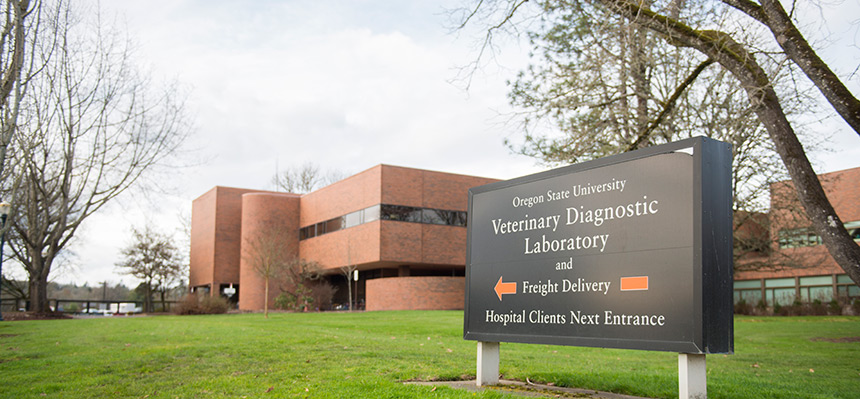The Oregon Veterinary Diagnostic Laboratory (OVDL) at Oregon State University recently received three grants — totaling $675,155 — from the National Animal Health Laboratory Network. The funds will allow the lab, housed at Oregon State University, to expand its efforts to respond to disease outbreaks in the Pacific Northwest.
The OVDL is a state-supported facility that offers a variety of animal diagnostic services to pet owners, biomedical researchers, veterinarians, and livestock producers. The OVDL is one of 60 university labs across the country that is a member of the National Animal Health Laboratory Network.
The OVDL’s main objectives are testing and diagnosing animal diseases, but when the COVID-19 pandemic hit and testing in Oregon was limited, they began to test human samples as well.
“We’ve really illustrated that animal testing and human testing are one and the same,” said Justin Sanders, who is both a principal investigator of OSU’s TRACE project and an assistant professor in OSU’s Carlson College of Veterinary Medicine. “Our capabilities in large-scale animal testing translate to human testing… Maintaining those capabilities for the future and building on them is critical.”
The three grants will each fund a specific aspect of OVDL’s emergency response work. The first grant will finance a series of practice exercises such as table-top outbreak simulations and physically processing fake samples in the lab. These exercises aim to improve OVDL’s preparedness for regulatory testing as well as their inter-agency coordination.
The second grant will allow the OVDL to incorporate the recently-acquired SARS-CoV-2 testing equipment into the existing emergency testing workflow, to help expand their animal disease testing in addition to implementing rapid sequencing of pathogens.
The third and final grant’s purpose is to improve communication between the National Laboratory Network and the OVDL in regard to emergency response and disease surveillance.
The OVDL plays an important role in keeping Oregon’s agricultural economy alive, making funding a top priority. The OVDL’s Quality Assurance Manager, Donna Mulrooney, mentioned that the lab is currently looking out for the African swine fever, which has yet to enter the U.S.
The OVDL’s ability to quickly respond to a foreign disease outbreak is especially important in Oregon. Because a large portion of Oregon’s economy is in agriculture, an uncontrolled animal outbreak has the potential to take a huge toll on both the state’s economy and food supply.
“The ability to rapidly identify and respond to agriculturally important pathogens and wildlife pathogens is critical to the economic health of the state,” said Sanders.
Article was originally published by The Corvallis Advocate.

